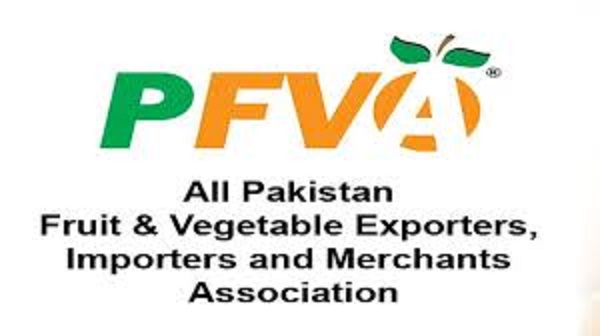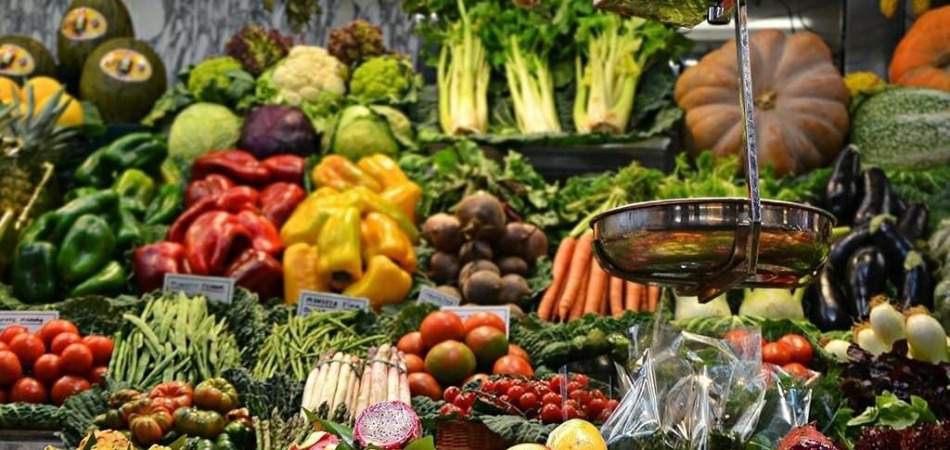PFVA seeks budget relief for fruit and vegetable industry

MG News | May 27, 2023 at 09:32 PM GMT+05:00
May 27, 2023 (MLN): The All Pakistan Fruit and Vegetable Exporters Association (PFVA) has submitted budget proposals for the next financial year to the Federal Government. The proposals include:
- Allocation of Rs100 million for Research & Development in cultivating new varieties of Kinnow.
- Withdrawal of 10% withholding tax on the juice industry.
- Elimination of sales tax on mushrooms grown in Pakistan to promote mushroom production.
- Reduction in fees for the issuance of Phyto-sanitary certificates.
- Withdrawal of import duty on aseptic bags used in the pulp industry.
- Exemption of import duty on spare parts used in the juice industry.
According to Waheed Ahmed, the Patron-In-Chief of the PFVA, the fruit and vegetable industry, including the value-added sector, is facing challenges due to high production costs. Measures should be taken in the next budget to reduce the cost of production for fresh fruits and the value-added sector.
The Kinnow industry in Pakistan is facing issues due to aging orchards and decreasing production. Allocating $100m for R&D in the next fiscal year’s budget can enhance Kinnow exports to $350m over the next four years.
Pakistan’s Kinnow industry has an investment of Rs130bn, however, the export has declined from $220m to $110m. The Kinnow industry consists of 250 processing factories and provides employment to a gigantic workforce of 250,000 people.
Waheed Ahmed stated that the juice industry in Pakistan, with a volume of Rs70 billion, is facing a decline in sales, and expressed fear that the sales may reduce to Rs43bn.
He disclosed that the juice industry is the main source of income for the farmers. In FY22, the local juice industry purchased 100,000 tons of mangoes from mango farmers only, but during the current season, this purchase is expected to be less than 50%.
He said that the imposition of a 10% federal excise duty on juices has led to reduced sales, affecting the industry and farmers, the sale of juices decreased by 45% during March and April, making it difficult for the survival of this industry and the protection of farmers.
Furthermore, Waleed Ahmed told that Pakistan imports around 70-80% of its mushrooms, despite favourable weather and climate for mushroom cultivation. The proposal recommends eliminating the sales tax on locally grown mushrooms to promote their production.
The PFVA attributes the increase in export costs to the exorbitant fee for issuance of phyto-sanitary certificates, which jumped from Rs300 to Rs2,500 in Sep 2014. He expressed that this abnormal increase of 800% in the fee is unjustified. They propose revising the fee downwards to a reasonable level.
Moreover, according to Waheed Ahmed, to meet the growing demand of the local juice industry, the concentrates, pulps, and pastes are packed in imported aseptic bags but the import of these bags is subject to 20% import duty, 6% additional customs duty, 10% regulatory duty, 18% sales tax, and 5.5% income tax.
Due to the high rate of taxes, the cost of production has multiplied many folds. Aseptic bags help farmers to preserve their hard-earned produce for up to 2 years, providing economic benefits to farmers and providing consumers with high-quality, safe juice products.
Since there is no substitute for imports of aseptic bags, PFVA has proposed to abolish the import duty on aseptic bags in the next fiscal year’s budget.
Lastly, production units manufacturing mango, guava, peach pulp, Kinnow, apple, carrot, beetroot concentrate, mango puree, and tomato paste import spare parts from different countries since these spare parts are not available locally.
There is an import duty of up to 35%, 2-6% additional customs duty, 18% sales tax, and 5.5% income tax on the import of parts, leading to an increase in the cost of production, making it difficult for the Pakistani industry to compete in the international market as well as the local market.
It is therefore necessary that the import duty on spare parts of the value-added industry should be eliminated in the upcoming budget.
Copyright Mettis Link News
Related News
| Name | Price/Vol | %Chg/NChg |
|---|---|---|
| KSE100 | 134,299.77 290.06M |
0.39% 517.42 |
| ALLSHR | 84,018.16 764.12M |
0.48% 402.35 |
| KSE30 | 40,814.29 132.59M |
0.33% 132.52 |
| KMI30 | 192,589.16 116.24M |
0.49% 948.28 |
| KMIALLSHR | 56,072.25 387.69M |
0.32% 180.74 |
| BKTi | 36,971.75 19.46M |
-0.05% -16.94 |
| OGTi | 28,240.28 6.19M |
0.21% 58.78 |
| Symbol | Bid/Ask | High/Low |
|---|
| Name | Last | High/Low | Chg/%Chg |
|---|---|---|---|
| BITCOIN FUTURES | 118,140.00 | 119,450.00 115,635.00 |
4270.00 3.75% |
| BRENT CRUDE | 70.63 | 70.71 68.55 |
1.99 2.90% |
| RICHARDS BAY COAL MONTHLY | 97.50 | 0.00 0.00 |
1.10 1.14% |
| ROTTERDAM COAL MONTHLY | 108.75 | 108.75 108.75 |
0.40 0.37% |
| USD RBD PALM OLEIN | 998.50 | 998.50 998.50 |
0.00 0.00% |
| CRUDE OIL - WTI | 68.75 | 68.77 66.50 |
2.18 3.27% |
| SUGAR #11 WORLD | 16.56 | 16.60 16.20 |
0.30 1.85% |
Chart of the Day
Latest News
Top 5 things to watch in this week
Pakistan Stock Movers
| Name | Last | Chg/%Chg |
|---|
| Name | Last | Chg/%Chg |
|---|




 MTB Auction
MTB Auction